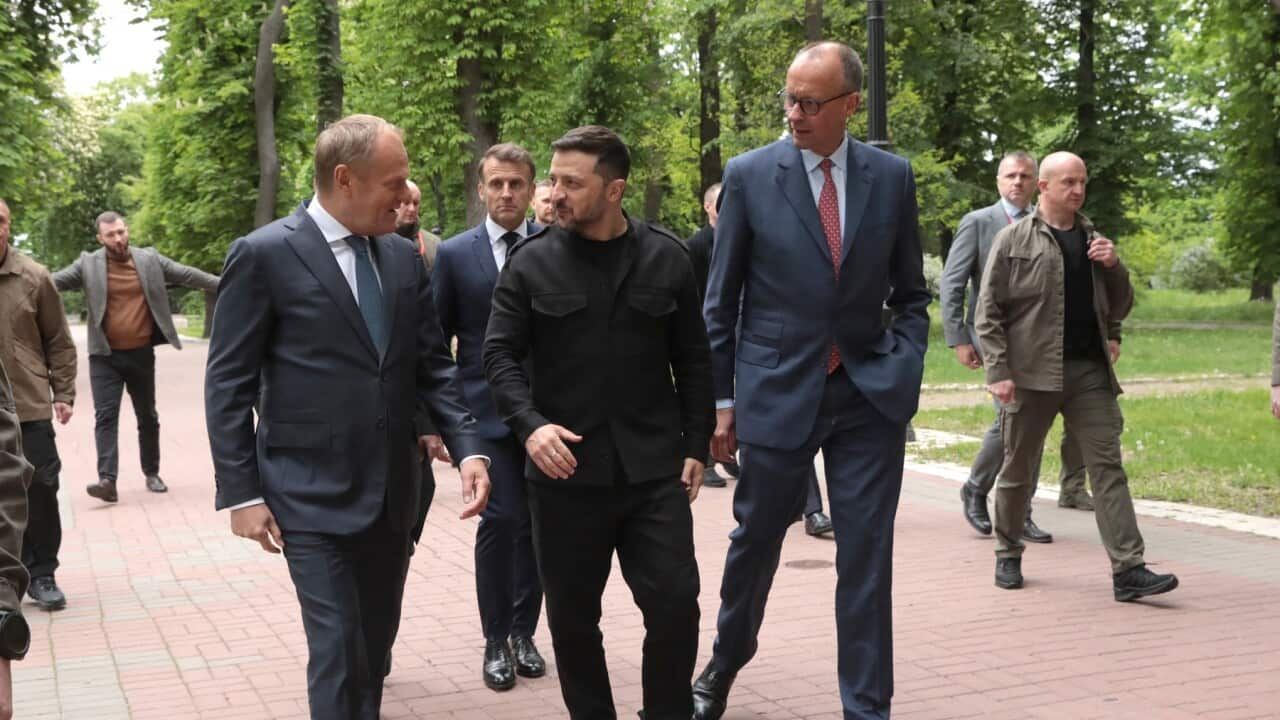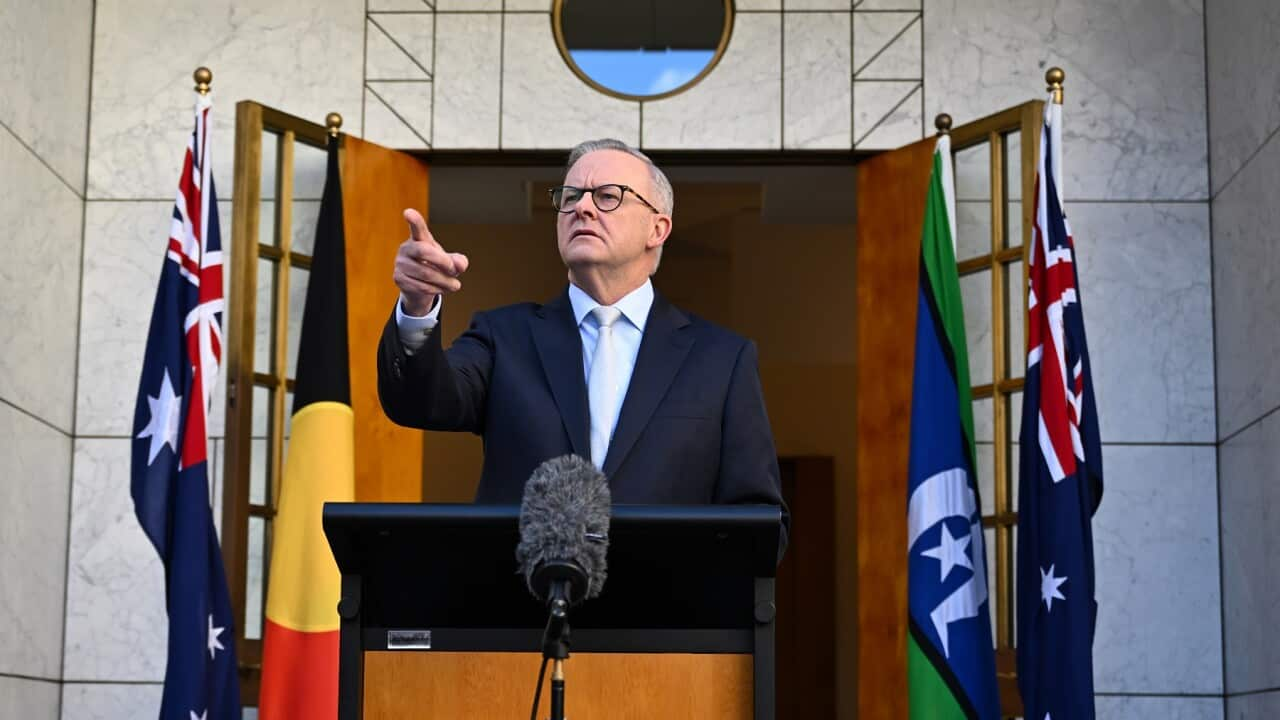TRANSCRIPT
After three years of devastating war in Ukraine, United States President Donald Trump claims an end is in sight after new diplomatic talks.
The President spoke with Russian President Vladimir Putin and Ukrainian President Volodymyr Zelenskyy on separate phone calls on Thursday, saying peace talks will begin immediately.
It's the US president's first big diplomatic step towards fulfilling his election promise to end the decade-long conflict, escalated three years ago when Russia illegally invaded Ukraine in February 2022 and all-out war began.
"No, we had a great call, and it lasted for a long time. Over an hour. This morning I also had with President Zelenskyy a very good call after that. And I think we're on the way to getting peace. I think President Putin wants peace and President Zelenskyy wants peace. And I want peace. I just want to see people stop getting killed."
No peace talks have been held since the early months of the conflict, now approaching its third anniversary.
Mr Trump's predecessor Joe Biden and most Western leaders held no direct discussions with Putin after Russia launched its full-scale invasion of Ukraine in February 2022.
The Kremlin said President Putin's call with Trump lasted nearly an hour and a half and that the two had agreed to meet in person, with Mr Putin inviting Donald Trump to visit Moscow.
"We'll get something done. We're going to be meeting... I'll be dealing with President Putin largely on the phone. And we ultimately expect to meet. In fact, we expect that he'll come here and I'll go there. And we're going to meet also probably in Saudi Arabia the first time we'll meet in Saudi Arabia, see if we can get something done. But we want to end that war. That war is a disaster. Really bloody, horrible war."
And the office of Ukraine's President Zelenskyy confirmed that he spoke with Mr Trump for about an hour, with the leader himself saying he felt positive about the talks.
"The conversation was long. We discussed many nuances, diplomatic, military, economic, and President Trump informed me of what Putin told him. We believe that America’s power is enough to, together with us, together with all partners, pressure Russia and Putin towards peace."
Donald Trump has long said he would quickly end the war in Ukraine, without spelling out exactly how he would accomplish this.
But many Ukrainians around the world are not optimistic that the President's solution to the conflict will hold a long-term positive outcome for their country.
This is largely due to a significant shift of U-S foreign policy outlined by Mr Trump's new Secretary of Defence, Pete Hegseth.
At the headquarters of the North Atlantic Treaty Organisation on Wednesday, Mr Hegseth said Ukraine cannot expect to gain back all territory seized since fighting began in 2014 with Crimea annexed by Russia that same year.
He added that the US will also not be seeking NATO membership for Ukraine as part of a peace deal.
"We want, like you, a sovereign and prosperous Ukraine. But we must start by recognising that returning to Ukraine's pre-2014 borders is an unrealistic objective. Chasing this illusionary goal will only prolong the war and cause more suffering. A durable peace for Ukraine must include robust security guarantees to ensure that the war will not begin again. That said, the United States does not believe that NATO membership for Ukraine is a realistic outcome of a negotiated settlement."
Some Ukrainian-Americans have been outraged by this shift in policy.
21-year-old Oleksandr Taran, president of Svitanok - a New York-based pro-democracy organisation advocating for Ukraine's sovereignty - says he's concerned by the approach of Mr Trump's administration.
“Ever since there's been news and changes in the policy towards the Russia-Ukraine war, we've been really worried, really worried because we care about the consequences of this war. And we want to make sure that the internationally recognized borders of Ukraine are respected. We want to make sure that the interests of the free, democratic world are also maintained. So that really matters to all of us. And we're worried to see the policy change.”
European powers and NATO allies have responded, saying Ukraine's fate must be decided with the Ukrainian government's active participation.
French Foreign Minister Jean-Noël Barrot says Europe will play its role in offering security guarantees for Ukraine even if NATO membership were not immediate.
German Foreign Minister Annalena Baerbock says she is ultimately encouraged by the diplomatic movements, saying Russian President Vladimir Putin must finally seek peace after three years of bloodshed.
“The most important thing for us is that we finally get around to it, after these three years of the terrible war Russia against Ukraine, that the Russian president comes to the negotiating table. As Europeans, we have always made it clear: the peace and negotiating table is ready, it is open. Putin's answer was three years of brutality and terror.”













